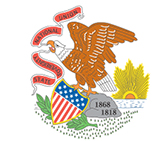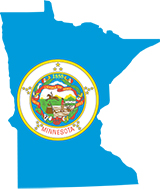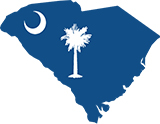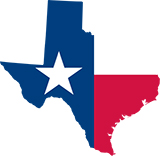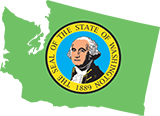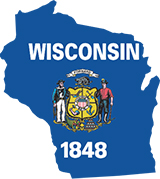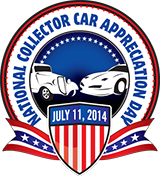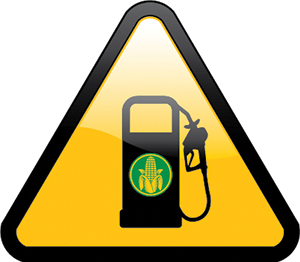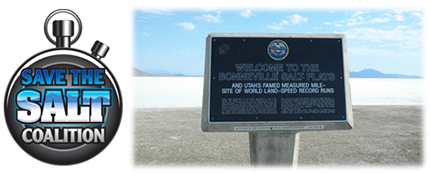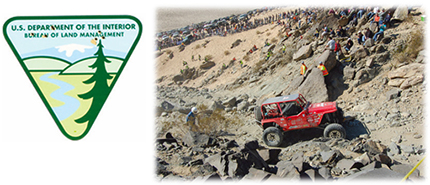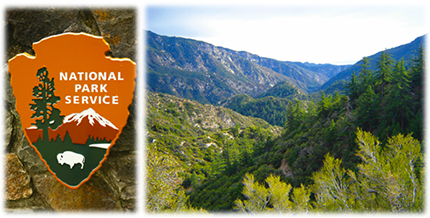◄ Back to Driving Force, Winter 2014
With the end of the 2014 legislative sessions throughout the United States and Canada, the SEMA Action Network (SAN) can look back at the past year with a great sense of pride. As long-time Driving Force readers have come to expect, wins at all levels of government have once again been earned on behalf of the automotive hobby. Proposals were introduced that affected nearly every faction within our four-wheel-centric constituency. Some bills required significant efforts to reach victory, while others just needed a timely nudge. Issues included titling and emissions requirements for collector vehicles, limiting vehicle- and property-tax increases, expanding registration plate options and fair use of specialty parts. A watchful eye has been kept on ethanol fuel mandates and recreational access to public land as well. While the holiday season is in full swing, don’t forget to begin making your plans to recognize Collector Car Appreciation Day on July 10, 2015. Follow the U.S. Senate’s lead, as many jurisdictions continue to do, and have your local lawmakers officially honor the occasion in your community next year. In the meantime, enjoy the following recap of legislative highlights. The next round of sessions are right around the corner…
STATE UPDATE
|
|
Arizona Emissions Inspections: In 2011, Arizona enacted a law to exempt all vehicles manufactured in model-year ’74 and earlier from the state’s mandatory biennial emissions inspection program. However, regulators must first update the state’s air-quality plan and demonstrate that the exemption will not impact Arizona’s compliance with clean air requirements. The updated plan must then be approved by the U.S. Environmental Protection Agency (EPA). The state has indicated to the SAN that it intends to submit a revised air quality plan to the EPA by early 2015. The EPA will then have another 18 months to approve or reject the changes. In the meantime, the current exemptions for pre-’67 vehicles and “collectibles” remain in effect. |
|
|
|
||
|
|
Colorado Collector Cars: Legislation that originally repealed the six-year limitation for applying a salvage brand to a motor vehicle for which the cost of being repaired exceeded its value was signed into law by Governor John Hickenlooper. A SAN-supported amendment to the new law protects from the salvage brand all vehicles that qualify as collector’s items, horseless carriages or street rods at the time of damage. This amendment prevents a permanent “salvage” blemish on the vehicle’s title, which would have made it suspect even if the vehicle is expertly restored or modified. |
|
|
|
||
|
|
Delaware Reconstructed Vehicles: SAN-supported legislation to exempt reconstructed vehicles that are more than 25 years old from emissions testing was signed into law by Governor Jack Markell. Under the new law, the vehicle must continue to meet and be inspected for safety and anti-tampering requirements for its model year. Vehicles exempt from emissions testing can only be used for participation in club activities, exhibits, tours, parades and similar uses, but not for general transportation or more than 1,000 miles per year. |
|
|
|
||
|
|
Hawaii Exhaust Systems: SAN-opposed legislation that would have required official inspection stations to test vehicles to determine if their exhaust systems “emit noise noticeably greater than that emitted by the vehicle as equipped from the factory” died when the legislature adjourned for the year. The bill had not been given committee consideration. The bill unfairly provided no objective standard by which vehicles could be tested and did not provide inspection stations with decibel readings on factory-installed exhaust systems. |
|
|
|
||
|
|
Illinois Ethanol: Legislation that would have allowed the state to provide information to gas stations encouraging the stations to offer E15 as an option for customers died as the legislature adjourned for the year. The bill also would have allowed state agencies to provide information to gas stations on any financial assistance that may be available to subsidize the cost of providing E15 blended fuel to consumers. SAN opposed the bill. |
|
|
|
||
|
|
Kansas Inoperable Vehicles: With strong opposition from the SAN, legislation that would have provided counties with the authority to remove from private property motor vehicles deemed to be a “nuisance” died when the legislature adjourned for the year. In Kansas, maintaining a public nuisance means “intentionally causing or permitting a condition to exist which injures or endangers the public health, safety or welfare.” This definition provides no real guidance for motor-vehicle owners maintaining inoperable vehicles on private property. |
|
|
|
||
|
|
Maryland Registration Surcharge: SAN-opposed legislation authorizing a county or municipality to impose an annual surcharge for the registration of a motor vehicle was considered by a Senate committee, but died when the legislature adjourned. The bill, opposed by the SAN, provided for a surcharge up to $20 per year. The measure made no special exception for hobby cars, such as street rods and historic vehicles, that constitute a small portion of the vehicle fleet, are infrequently operated and deserving of lower taxes and fees. |
|
|
|
||
|
|
Massachusetts Vehicle Miles Travelled: Legislation to establish a pilot program to impose a vehicle-mileage user fee was heard in committee but died when the legislature adjourned. The bill was intended to supplement the gas tax and implement alternative ways to raise transportation revenue for the state. The pilot program would have included at least 1,000 drivers of trucks, passenger and commercial vehicles. These drivers would have on-board vehicle-mileage-counting equipment installed on their vehicles which would report the number of miles traveled. Payments would be collected from participants. As gas tax revenues decrease due to a more fuel-efficient fleet of vehicles, states are looking for new sources of funding for pet projects. SAN opposed the bill.
Massachusetts Exhaust Noise: The Joint Transportation Committee heard testimony on a bill that would ban the “use and sale of any exhaust pipe that increases the sound emissions of any vehicle, including motorcycles,” but took no action thereby allowing the bill to die. This measure, opposed by the SAN, only supplied law enforcement with a clear standard to enforce for motorcycles, but would have allowed them to make subjective judgments on whether a modified exhaust system on any passenger vehicle or truck was in violation. |
|
|
|
||
|
|
Michigan Historic Military Vehicles: Legislation to exempt historic military vehicles from the requirement that they display a license plate unless the vehicle was originally manufactured with lighting and mounting provisions for a plate was signed into law by Governor Rick Snyder. Under the law, if the plate is not attached to the exterior of the historic military vehicle, it must be present in the vehicle and available upon demand by law enforcement officers.
Michigan Exhaust Noise: Working with the legislature, the SAN decided to abandon a plan to offer a compromise to overly restrictive exhaust noise legislation. The measure originally sought to prohibit motor-vehicle repair facilities from modifying an exhaust system to “produce noise in excess of OEM stock decibel levels.” The bill carried a fine of $10,000 for each violation. The parties determined that there was insufficient time in the legislative session to gain a consensus among industry and hobbyist stakeholders which would enable a compromise to be enacted into law. This action essentially killed the bill for 2014. |
|
|
|
||
|
|
Minnesota Mileage User Fee: Legislation that would have established a pilot program to impose a vehicle-mileage user fee died when the legislature adjourned for the year. The bill sought to penalize national efforts to create a more fuel efficient vehicle fleet by taxing drivers based on vehicle mileage. SAN opposed the bill. |
|
|
|
||
|
|
Nebraska Headlamps: A SAN-opposed bill to require headlamps to be “clear or of a white color” died when the legislature adjourned for the year. The SAN had urged the bill sponsor to amend the bill to conform to the federal lighting standard. Under that standard, it is possible to design a headlamp that emits a light that is perceived as having a blue tint but which nevertheless remains within the boundaries that define “white.” |
|
|
|
||
|
|
New Hampshire Year-of-Manufacture Plates: SAN-supported legislation to expand the range of vehicles eligible to use original year-of-manufacture license plates on antique motor vehicles was signed into law by Governor Maggie Hassan. Under previous law, only ’60-and-earlier model-year antique vehicles were eligible to use these plates. Under the new law, eligibility would be expanded to include all ’75-and-earlier model years. |
|
|
|
||
|
|
North Carolina Headlamps: A provision in legislation to impose a $100 fine on any person who equipped a car with headlamps that “change the original design” was stricken from the bill. The provision bill directly conflicted with federal law which makes clear that the standards adopted by the National Highway Traffic Safety Administration (NHTSA) for required motor-vehicle equipment (including headlamps) are to be performance standards, not design standards. |
|
|
|
||
|
|
Ohio Headlamps: Legislation that originally required headlights on motor vehicles to display a “white light” without defining the term was signed into law by Governor John Kasich. A SAN amendment that was included in the new law now conforms the legislation to NHTSA standards regarding headlamp color. Under the NHTSA standard, it is possible to design a headlamp that can be perceived as having a blue tint but which nevertheless remains within the federal boundaries that define “white.” |
|
|
|
||
|
|
Rhode Island Replica License Plates: A SAN-supported bill to authorize the state to issue replica year-of-manufacture plates for antique vehicles was signed into law by Governor Lincoln Chafee. |
|
|
|
||
|
|
South Carolina Registration Fees: Legislation to increase biennial registration fees for motor vehicles died when the legislature adjourned for the year. The bill would have increased the registration fees for private passenger vehicles from $24 to $36 for persons under age 65. For persons 65 years old and older, the fees for private passenger vehicles would have risen from $20 to $32. SAN opposed the bill. |
|
|
|
||
|
|
Tennessee Antique Vehicles: Legislation to allow counties to exempt owners of antique motor vehicles from the privilege tax was signed into law by Governor Bill Haslam. Under the new law, the county may also only require a one-time only payment of the tax. According to the state, the average amount of the one-time tax imposed would be $43.10. |
|
|
|
||
|
|
Texas Street Rods/Custom Vehicles: In response to comments from the SAN, Texas regulations have been amended to remove a provision disallowing the titling of vehicles without “a body, motor and frame manufactured by a motor-vehicle manufacturer.” Under the amended regulations, such vehicles may be registered using the street-rod and custom vehicle law passed by the state’s legislature in 2011. The 2011 law, a product of SEMA-model legislation, provides that vehicles that are made to resemble older vehicles, but which have been altered from those older vehicle’s original manufacturer’s designs or constructed from non-original materials, may be titled as street rods and custom vehicles. The regulatory change ensures vehicles without an original manufacturer body, motor and frame can be titled under the street-rod and custom vehicle law going forward. The DMV also indicated that vehicles constructed with original steel bodies and frames will no longer be erroneously branded “replicas.” |
|
|
|
||
|
|
Vermont Exhaust Systems: A SAN-opposed bill to ban motor vehicle exhaust systems that increase the noise level died when the legislature adjourned for the year. Under the bill, violators would not have passed the state’s required inspection and would have been subject to fines of up to $350. The bill did not provide an opportunity for vehicle hobbyists to install and use aftermarket modified exhaust systems that meet an objective decibel limit under a fair and predictable test. Instead, the bill would have allowed inspectors to make subjective judgments on whether an exhaust system amplified the noise emitted by the motor vehicle. |
|
|
|
||
|
|
Virginia Exhaust Systems: A SAN-supported bill to allow antique vehicle hobbyists to install and use aftermarket exhaust systems was held over to the 2015 legislative session by the Senate Transportation Committee. The bill had already been approved by the House of Delegates. |
|
|
|
||
|
|
Washington Collectible Vehicles: A bill, supported by the SAN, to exempt collectible vehicles of any age from emissions testing was approved by the legislature and signed into law by Governor Jay Inslee. The new law defines a collectible vehicle as “a vehicle of unique or rare design, of limited production, and an object of curiosity that is maintained primarily for use in car club activities, exhibitions, parades, or other functions of public interest or for a private collection, and is used only infrequently for other purposes.” The law requires that the vehicle have collectible vehicle or classic automobile insurance coverage that restricts the collectible vehicle mileage or use, or both, and requires the owner to have another vehicle for personal use. |
|
|
|
||
|
|
Wisconsin Historical Plates: A bill to allow the display, on collector vehicles manufactured before 1979, of one or two historical registration plates from or representing the model year of the vehicle was signed into law by Governor Scott Walker. Under the law, these plates can be used if the vehicle is being operated to or from a car show or parade and any current registration plate issued for the vehicle is carried in the vehicle. |
|
|
|
||
|
|
Collector Car Appreciation Day (CCAD): At the request of SAN, Senators Jon Tester (D-MT), Richard Burr (R-NC) and Mark Begich (D-AK) once again secured passage of a U.S. Senate resolution (S. Res. 493) recognizing Collector Car Appreciation Day (CCAD) on Friday, July 11, 2014. The day serves to focus attention on the vital role automotive restoration and collection plays in American society. Thousands of Americans gather at car cruises, parades and other events to celebrate our nation’s automotive heritage. Next year’s event is scheduled for July 10, 2015.
|
|
|
|
||
FEDERAL UPDATE
|
|
|
|
|
Ethanol: The U.S. Environmental Protection Agency (EPA) acknowledged that a 2007 federal law sets unrealistic mandates on the amount of ethanol that can be blended into gasoline. The Renewable Fuel Standard (RFS) requires an increasing amount of biofuel be blended into gasoline each year, from 9 billion gallons in 2008 to 36 billion gallons by 2022. However, nearly all gasoline sold in the United States contains up to 10% ethanol (E10) and there is widespread opposition to increasing that amount to 15% (E15) in order to meet the RFS mandates. For the first time since the RFS became law in 2009, the EPA is lowering the targeted amount of ethanol blended in gasoline. SAN has joined with a number of other organizations representing a variety of industries in asking Congress to reform the RFS biofuel mandates and to ban the sale of E15. While the EPA has approved E15 for use in 2001 and newer vehicles, the agency has made it illegal to use in older vehicles for fear of equipment damage. However, the EPA only requires a gas pump warning label for unsuspecting consumers. Congress is expected to consider legislation to reduce ethanol mandates in late 2014 or 2015. |
|
Bonneville Salt Flats: 2014 marked the 100-year anniversary for land speed racing at Bonneville. Celebrations included a display of historic race vehicles at the Grand National Roadster Show and publication of the “Century of Speed” which garnered well over $50,000 in book sale donations for salt replenishment activities. SAN has joined with the Save the Salt Foundation and a number of other organizations and companies to fundraise and coordinate the dry salt laydown activities. Funds contributed will be used to replenish the salt flats beyond the current salt brine pumping program which resulted in more than 300,000 tons of salt being restored to Bonneville in the last year. Over the summer, about 2,000 tons of dry salt was directly deposited at the end of the access road to Bonneville. The Coalition plans to repeat and expand the effort prior to next year’s racing season. It will also continue to explore other options for improving conditions at the historic venue for land speed records. |
|
|
|
|
|
|
|
|
|
|
|
|
|
Johnson Valley, California: In 2013, the SAN worked with a number of other off-highway vehicle (OHV) groups and lawmakers to help resolve a six-year dispute over access to 189,000 acres of southern California desert. The U.S. Congress passed a law in 2013 to create a 96,000-acre Johnson Valley Off-Highway Vehicle Recreation Area. The area hosts the famous King of the Hammers Race. Twice a year, the U.S. Marine Corps will have limited access to part of the OHV area for military training exercises. In 2014, the U.S. House of Representatives passed a SAN-supported bill to include the word “National” within the “Johnson Valley” title to distinguish it as the nation’s first federal OHV area. |
|
National Monuments: Under current law, the President has the authority to declare public land with “historic or scientific interest” to be a National Monument. The designation usually prohibits new roads and frequently results in the closure of existing roads and trails for motorized recreation. SEMA supports a bill passed by the U.S. House of Representatives to limit that authority. Under the bill, the President could declare a monument less than 5,000 acres, but that declaration would need Congressional approval within three years. A larger parcel of land would require a National Environmental Policy Act (NEPA) study, thereby ensuring public input. The bill is pending consideration in the U.S. Senate. In just the past two years, President Obama has designated 346,000 acres of the San Gabriel Mountains northeast of Los Angeles as a National Monument and another two monuments in New Mexico totaling nearly 750,000 acres. |





